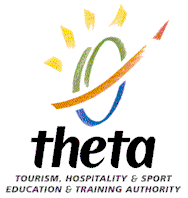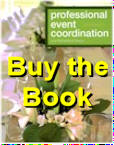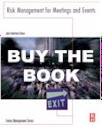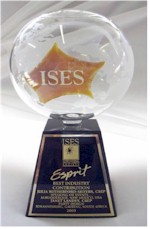|
Tourism
Learnership Project
Event
Management Training Program*
The Event
Management Training Program was developed for South Africa’s
Tourism Learnership Project — National Certificate in Tourism: Event
Support NQF Level 4 under the auspices of the Tourism, Hospitality &
Sport Education & Training Authority (THETA). It was designed to
deliver a relevant, accurate, and credible program of study for learners
in the field of event management and event tourism in conjunction with
South Africa’s National Qualifications Framework (NQF).
|
 |
|
The
purpose was to create a valid, reliable, fair, flexible, and sustainable
curriculum to upgrade service levels, build capacity and promote job creation in
this field, and generate increased economic revenues from events and event
tourism. This 96-part curriculum design provided:
-
A transparent and
consistent format that provides the Learner, Trainer, Workplace Mentor, and
Assessor with comprehensive and cohesive standards of competency;
-
A program syllabus
that avoids trainer bias in presenting the materials ensuring the
standardization of delivery; and
-
Skill-based
competencies linked directly to internationally validated performance
outcomes with wider opportunities for employment and career success.
The
Event Management Training Program forms the basis for theoretical learning
as well as provides a foundation and context for the experiential learning
conducted in the workplace and at numerous real-life, on-site event
opportunities, and has been approved by the ISES Certification Commission as a
CSEP entry-level program.
The
Instruction Design
The
learning materials consist of a Learner Guide, a Master Guide (for Trainers,
Workplace Mentors, and Assessors), and a PowerPoint Presentation for each of
eight Modules. Each Module Guide contains four Units plus a list of suggested
resources including pertinent books, guides, and Internet sites.
Each
Module Unit contains three Topics, each introduced with a one-page overview of the
content and concepts, and illustrated with graphics, call-out charts, and case
study and other examples. In-class Group Activities, Workplace Activities, Home
Activities, and Self-Evaluation Exercises follow each topic. Each Unit also
includes a Vocabulary section, a Portfolio of Evidence Activity, and a Unit
Evaluation consisting of extended response questions.
-
The In-class Group
Activities encourage facilitated small group and class discussions, which
allows the learners to integrate and relate their adult experiences and
perspective to the content.
-
The Workplace
Activities encourage the application of material to the specific workplace
and the events produced or supported by the workplace.
-
Many of the Home
Activities are designed to integrate the concepts into the learner’s daily
life and environment.
-
The Portfolio of
Evidence Activities encourage learners to conduct relevant research and
compile a file of resources suitable to support future event-related
employment and endeavors.
In
addition to the fully replicated content of the Learner Guides, the Master
Guides contain Trainer Notes, Workplace Mentor Notes, and Assessor Notes, as
well as the answer keys to all the assessment exercises.
-
The Trainer Notes
include training instructions, suggestions, and recommendations for guest or
outside presenters and activities pertinent to each topic.
-
The Workplace
Mentor Notes include suggestions for additional activities to reinforce the
content and concepts in the context of the workplace’s practical
operations, as well as techniques for on-the-job coaching, application, and
other reinforcement activities.
-
The Assessor Notes
include methods and strategies for assessing the recognition, retention, and
application of the knowledge and skills that are transmitted.
| The learning materials were designed by
Julia Rutherford Silvers, CSEP, and tested and implemented by Janet
Landey, CSEP, as the Lead Employer and Accredited Provider under the
Tourism Learnership Project. The Event Management Training Program
was awarded the 2003 ISES Esprit for Best
Industry Contribution.


|
 |
|
|





